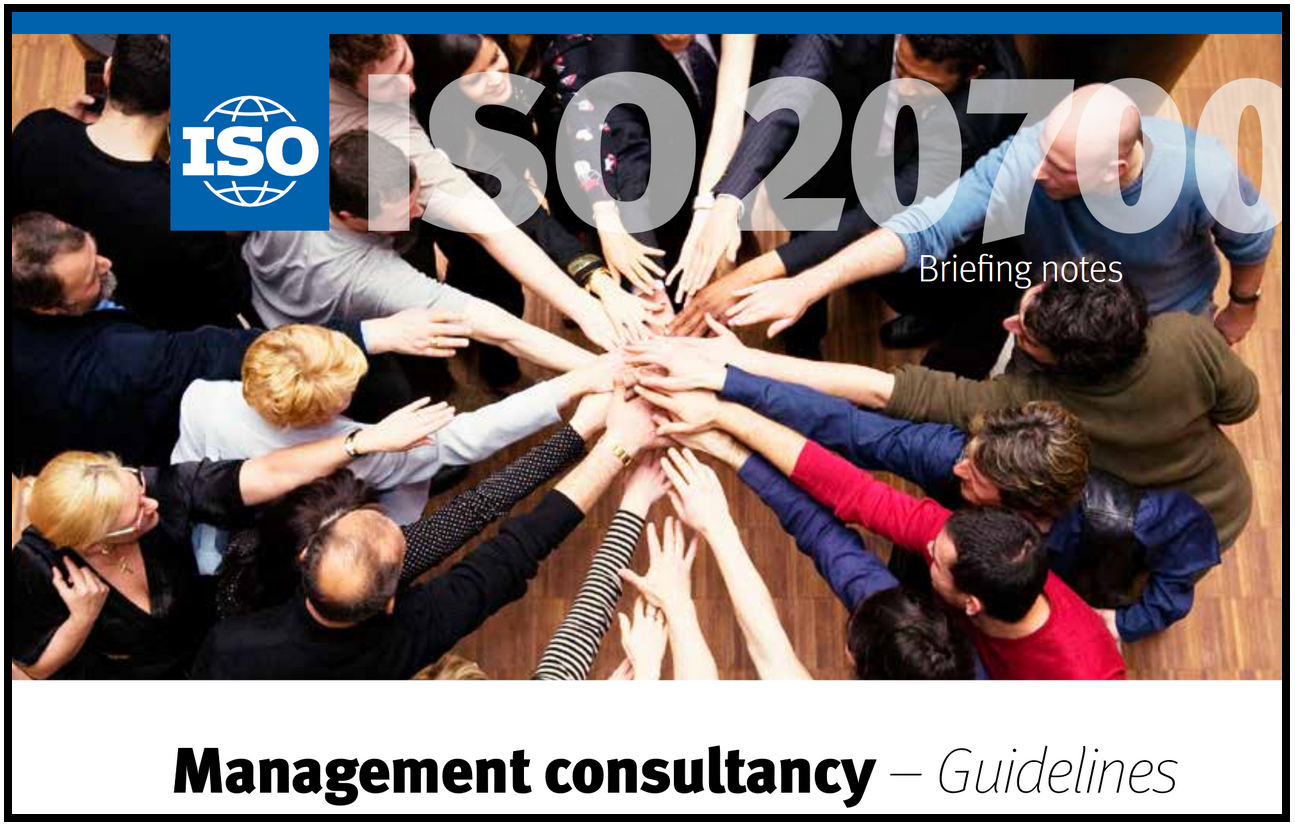By: Peter Milsom, FCMC, GPM Global
Be one of the first 50 Canadian CMCs authorized to self validate their projects against ISO 20700. Welcome to the third of three blogs designed to provide an overview of the ISO 20700 Management Consulting standards and how Certified Management Consultants (CMCs), through CMC-Ontario and CMC-Canada can be approved to use the ISO 20700 Check List for consulting engagements.
The recently introduced CMC-Global Self Declaration Checklist provides a unique and useful toolkit and service offering to Certified Management Consultants and our clientele. Once you have signed up and received the checklist material, and are trained and accredited, you will receive the following unique benefits:
1. A clear understanding of the differences between the CMC designation and the IS0 20700 Guidelines, for both the CMC and the client;
2. Recognized by CMC-Global as trained in ISO 20700 by CMC-Global;
3. Accredited by CMC-Global to self-declare and "stamp" your project compliant with ISO 20700;
4. Your clients will be aware of what the international community has established as the base requirements for a management consulting engagement which will help set expectations and raise awareness;
a) To be able to inform the client of their expectations and responsibilities during the project cycle.
b) Empower the client to be a partner in the consulting process.
5. You will be able to highlight how Canadian CMCs operate at a much higher level of maturity than the rest of the world because of our Code of Conduct;
1. A clear understanding of the differences between the CMC designation and the ISO 20700 Guidelines
Being trained in ISO 20700:2017 Guidelines for Management Consultancy Services and / or the associated CMC-Global Checklist does not make anyone a management consultant, nor does it make one a consultant. Saying that your project is compliant also does not mean anything, unless you conform to the items in the next sections (Numbers 2 & 3 below). It is for this reason, that CMC-Canada is focusing at this time specifically on CMCs for the ISO 20700 Guidelines training due to our extensive and demonstrable knowledge and experience. CMC-Canada wants to ensure that the Checklist attendees have a sound understanding of the Canadian management consultancy profession and practices, and our Canadian Uniform Code of Professional Conduct.
It also important to reinforce that ISO 20700 is not an auditable management system or "how to" guide, but rather is intended to:
“improve transparency and understanding between clients and management consultancy service providers, in order to achieve better results from consultancy projects.”
The CMC-Global Self-Declaration Checklist is to be used as a guide for the Consultant and Client through the management consultancy phases of the project and ensure that all required points are covered and are in agreement with each other.
In short, ISO 20700:2017 and the Checklist are complementary and not competitive with the CMC. It is also an important point that compliance with ISO 20700:2017 requires a code of ethical and professional conduct:
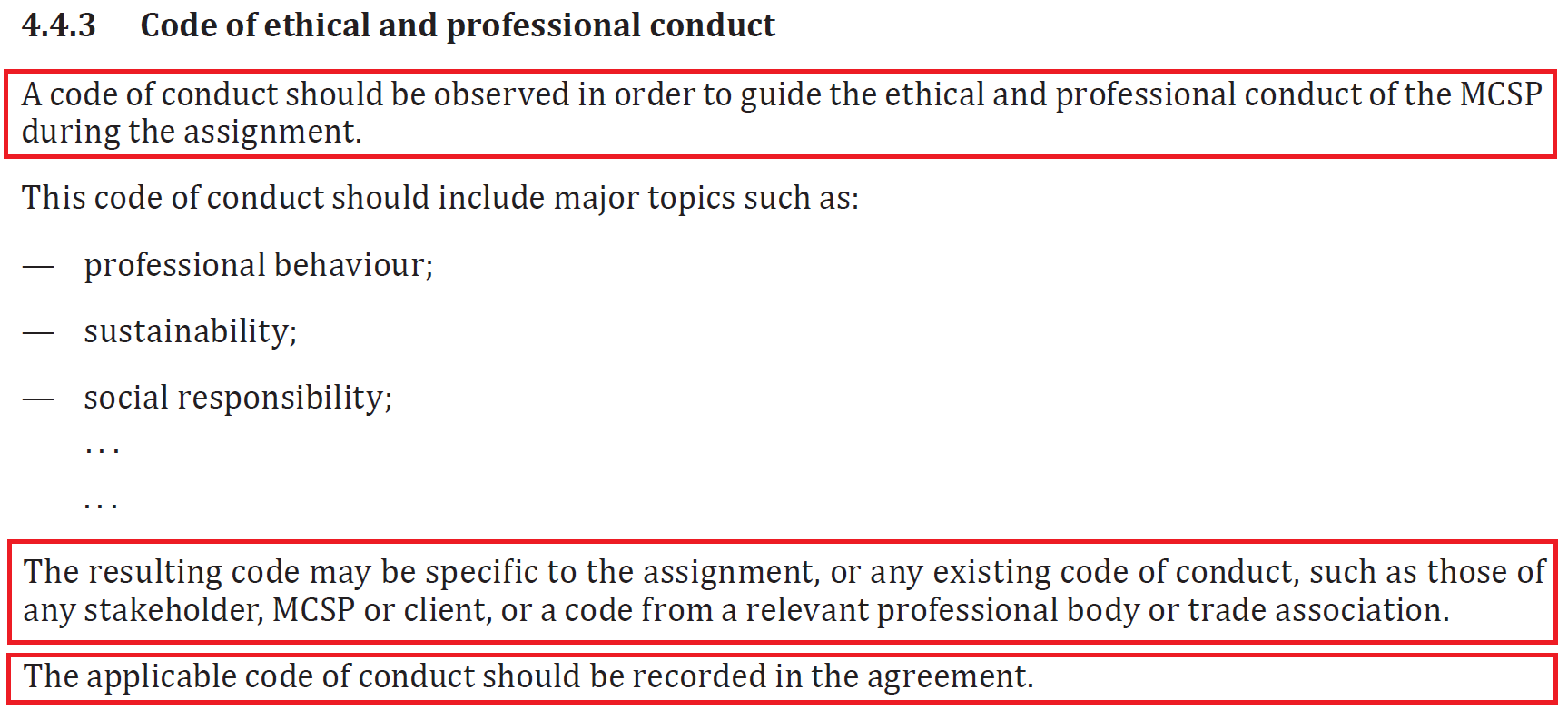
There are two other important points:
1. The ISO 20700:2017 does not conform directly to CMC-Canada's teachings and practices. Indeed CMC-Canada provides a more mature grounding than ISO 20700 and the Checklist, so much so that CMC-Canada has a specific version of the Checklist in large part because of our Code of Professional Conduct. It is important though to know what the differences are.
2. As a facilitator for the CMC-Canada Essentials of Management Consulting Course and the Ethics course, I would argue that Canadian CMCs already know most of what is in the ISO 20700 guidelines based on our current training, Uniform Code of Professional Conduct and certification process. There are a few areas that are unique, but in general Canadian CMCs are already up to speed. It is important, though once again to know what the differences are and to be aware of them.
2. Recognized by CMC-Global as trained in ISO 20700
The CMC-Global Checklist training, conducted by accredited CMC-Global trainers approved by their national Institute for Management Consulting (IMC), takes a couple of hours and can be done online. Once the candidate has signed up, payed for the training, received the material, and taken the training course their name will be added to the international registrar: http://www.iso20700.org/content/list-trained-consultants.
Also, the candidate will be able to add the "Trained in the ISO 20700:2017 Guidelines for Management Consultancy Services by CMC-Global" sentence in signature or a separate line by the trained individual. You can also add the following stamp:
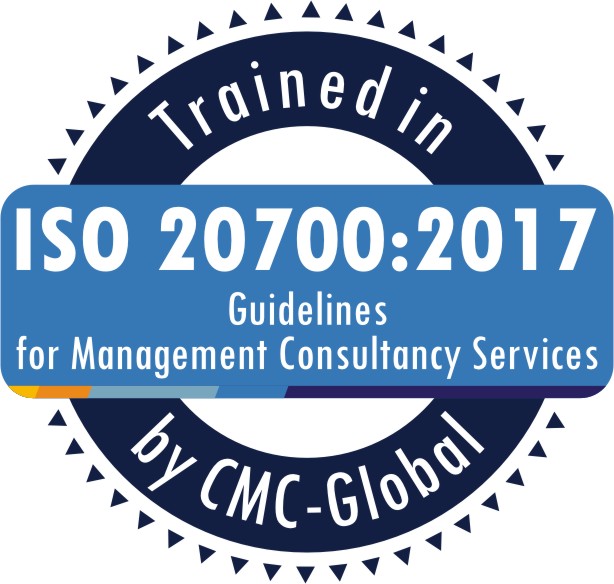
As an aside, the course does not include the ISO 20700:2017 Guidelines for Management Consultancy Services, but it is strongly recommended to add to your professional library. To purchase this you can try the following:
https://www.iso.org/standard/63501.html
As of June 2019 the rough cost was CHF 138 (138 Swiss Francs) or 187.15(ish) Canadian.
3. Accredited by CMC-Global to self-declare and "stamp" your project compliant with ISO 20700
Unlike those that can indiscriminately say they are compliant with ISO 20700, Canadian CMCs who have gone through the CMC-Global Checklist training and follow the process with their client will be accredited by CMC-Global to self-declare their project as compliant with ISO 20700. Please note that the trained consultant is allowed to use the CMC-Global Checklist brand in their presentation material (e.g. Website, Business Cards, e-mail signature), but the delivery of an assignment according to ISO 20700 has to be agreed individually for every project with the client.
ICMCI is the only worldwide organization which represents the Management Consulting Professional Bodies. It is a non-profit umbrella organization of 50 National professional bodies which together represent the nations with over 85% of the world's estimated two million management consultants.
In recognition of the role management consulting plays in world trade, CMC-Global was granted Non-Government Organization (NGO) status with Special Consulting Focus by the United Nations Economic and Social Council (ECOSOC) in 2001.
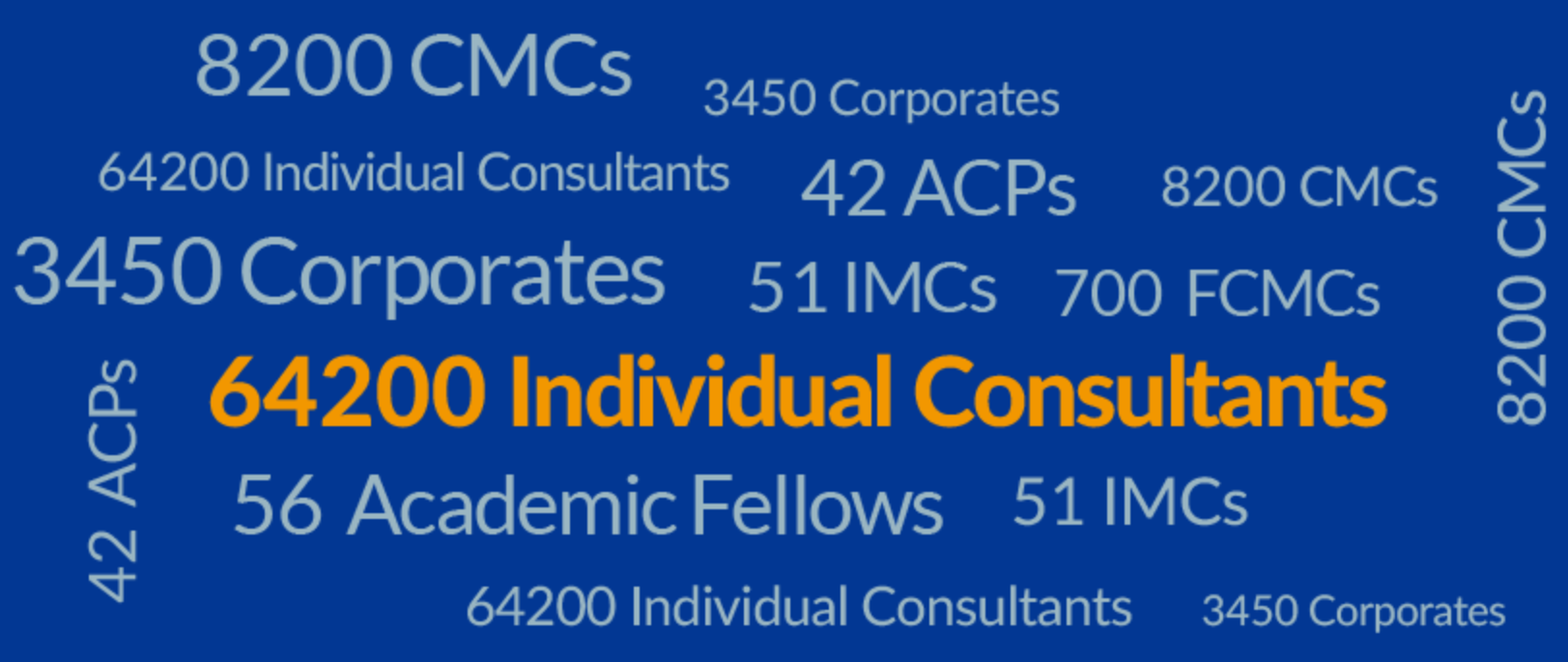
4. Your client will be aware of what the base requirements for a management consulting engagement are
Working through the checklist with your client, your client will become aware of what the international community has established as the base requirements for a management consulting engagement which will help set expectations and raise awareness. This is very important for many clients to know that they are following / compliant with internationally recognized "better" practices.
As an additional benefit, you will be able to highlight the client's expectations and their responsibilities during the project cycles. This will empower the client to be a better more empowered partner in the consulting process, and able to make more informed decisions.
5. You will be able to highlight how Canadian CMCs operate at a much higher level of maturity than the rest of the world
This is unique to our training program. What we will focus on briefly is why our CMC-Global Checklist is different from the rest of the world based primarily on our Code of Professional Conduct. A simple example is provided below around contracting. In Canada, we can not accept a handshake for a contract. For the rest of the world, for "Small" engagements (to be determined by the Consultant) the only requirement is "The whole workflow may be informal and might end up in an informal non-written agreement." For Canada, we require the following for "Small" engagements:
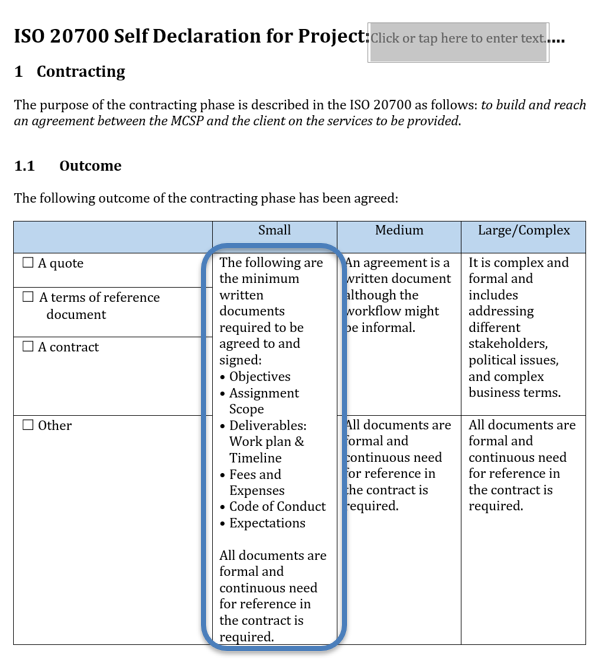
These specific requirements come from our Canadian Uniform Code of Professional Conduct:
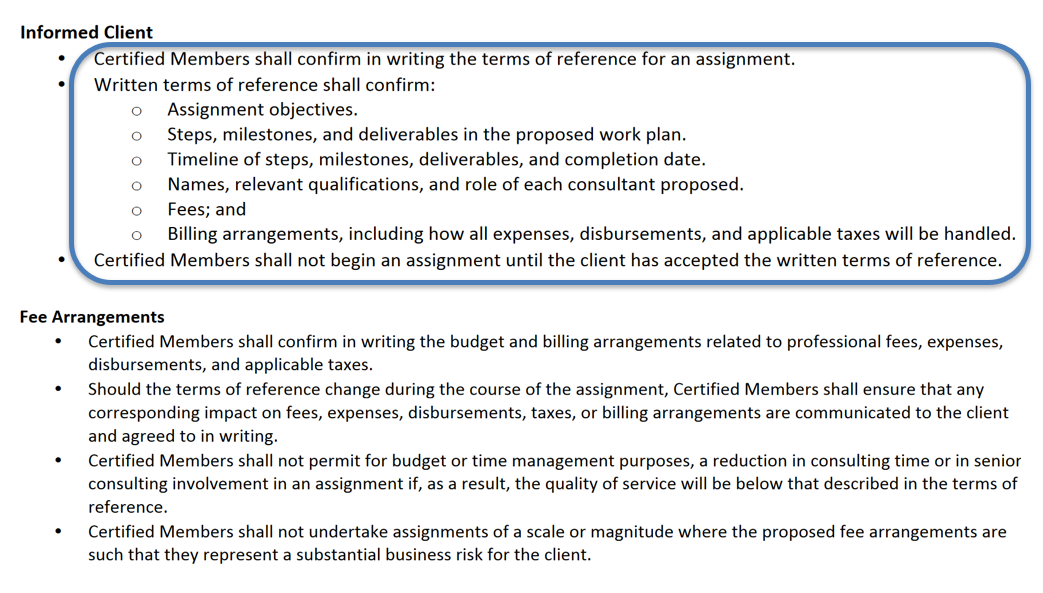
About the Author - Peter Milsom, FCMC, GPM Global
Peter Milsom helps organizations understand what sustainability means to them, to maximize their benefits and value while minimizing costs and threats. He does this by helping organizations at all levels from the c-suite to the front lines understand what all of the elements of sustainability are, and helping them prioritize and focus on those areas that make the most sense.
He is a contributing author: Sustainable Project Management - The GPM Reference Guide, 2nd Edition; The GPM P5 Standard for Sustainability in Project Management v1.5.


